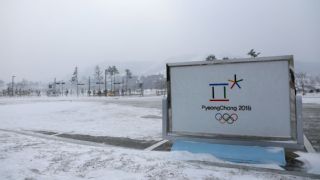|
In a perfect world, the NHL would set aside time during September's World Cup of Hockey to announce that it will take part in the 2018 and 2022 Winter Olympics and then lay out its ambitious international calendar. Much oohing and aching would ensue. But that's not going to happen. As aggressive as the world's best hockey league is being as it tries to bring its game to, well, the world, there remains a gaping hole in the NHL's international schedule and thus in the overall global future of the league. The NHL -- along with the players and the National Hockey League Players' Association executive director Don Fehr, who is an unabashed supporter of international hockey -- wants nothing more than to extend its footprint globally. The league features players who hail from every corner of the hockey-playing world. But there remain more untapped markets to be explored and exploited. The World Cup is a crucial steppingstone toward taking the game places it has never gone before. If commissioner Gary Bettman's prediction is accurate that every seat will be sold for the eight-team tournament, which will take place at Toronto's Air Canada Centre from Sept. 17 to Oct. 1, then the event could serve as a springboard to more games in Europe, including a Ryder Cup-style series of All-Star events and a return to regular-season games in European centers. But the NHL can never fully achieve what it wants in terms of international hockey until it resolves the issue of whether it will allow players to participate in the Olympics. With apologies to The Clash, should it stay or should it go? The league cannot decide whether to close the door to Olympic participation until it knows what that will mean when the 2018 Olympics are held in South Korea -- and, more important, what will happen four years later when the 2022 Games are held in Beijing, China. If Bettman were to put Olympic participation to a vote today, we're guessing owners would vote emphatically to close the door to NHL participation at the Games, which began when NHL players first donned national jerseys at the 1998 Olympics in Nagano, Japan.  There have been stunning successes -- including Canada's dramatic, gold-medal win over the U.S. in 2002 and the granddaddy of all Olympic hockey tournaments in Vancouver eight years later, when Sidney Crosby scored in overtime to give Canada the gold over an upstart group of Americans, creating hitherto unheard-of television ratings for international hockey. But there have been disappointments, too, such as in Nagano and Torino, where there was no lasting connection to the NHL or the game in spite of the significant commitment made by the league and its players at those tournaments. There have been stunning successes -- including Canada's dramatic, gold-medal win over the U.S. in 2002 and the granddaddy of all Olympic hockey tournaments in Vancouver eight years later, when Sidney Crosby scored in overtime to give Canada the gold over an upstart group of Americans, creating hitherto unheard-of television ratings for international hockey. But there have been disappointments, too, such as in Nagano and Torino, where there was no lasting connection to the NHL or the game in spite of the significant commitment made by the league and its players at those tournaments.
The 2014 Sochi Games would have been the last go-around for the NHL had that tournament not turned out to be such a success. The players loved playing in Russia, and many of the issues the league and players' association had complained about after other Olympics -- such as accreditation for staff, use of images and ticketing -- were addressed by the Olympic organizers. The league and players' association will want assurances that those issues will continue to be met by the International Olympic Committee, International Ice Hockey Federation and broadcasters going forward. But that won't be enough to entice the league to commit to continued Olympic participation. The next two Olympic Games will be held far away from North America and outside of the prime-time television window. If the league were just considering the prospect of South Korea, it would be all but out by now. But the lure of China has given Bettman pause. As it should. Could the NHL make inroads in the world's most populous country? Could there be lasting benefits for the league that would make shutting down the NHL for three weeks or so -- and the risk of injury to NHL owners' most important assets, the players -- more palatable for at least two more Olympic tournaments before a possible return to a North American venue in 2026 or 2030? That's what remains unknown. The NHL has not heard much from Chinese ice hockey officials regarding its plans if the NHL does come to Beijing in the winter of 2022. Too little, in fact. If, at some point, Chinese officials come up with a plan for building arenas, for committing funds to grassroots hockey, for making the '22 tournament a catalyst for the game's growth in Asia, well, then that's something the NHL would listen to. Because if it's one thing team owners agree upon, it's making money, and if there is a strong belief going to China will pay real dollar dividends down the road, then the NHL and its players will be there. If silence continues to be the response from China, then all Olympic bets are off. There's still plenty of time to figure this out, of course. Indeed, a final decision on Olympic participation isn't expected until well after this summer's Olympics in Brazil and long after the World Cup of Hockey has come and gone. All of which is kind of a shame for anyone hoping to know what the NHL's future international plans might include.
|


